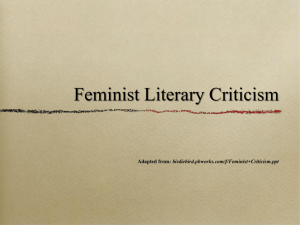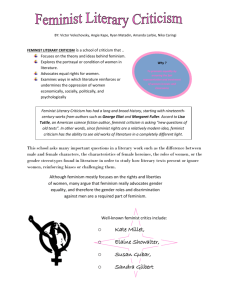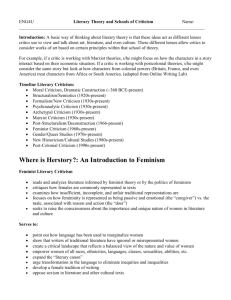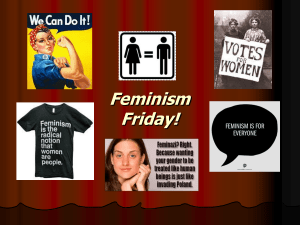1. Feminisms and Feminist Literary Criticism: Definitions
advertisement
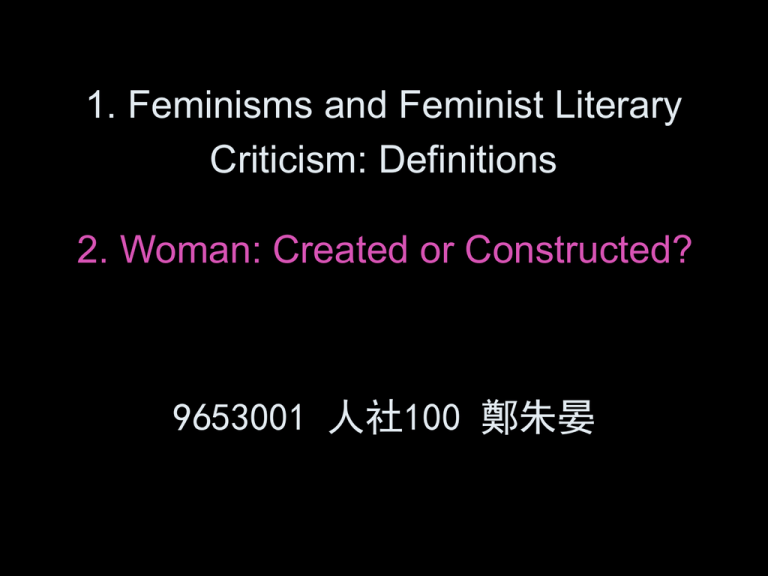
1. Feminisms and Feminist Literary Criticism: Definitions 2. Woman: Created or Constructed? 9653001 人社100 鄭朱晏 1. Feminisms and Feminist Literary Criticism: Definitions • Engage with biological, linguistic, psychoanalytic, Marxist, poststructuralist, and cultural studies, as well as ethnic and race studies, postcolonial theory, lesbian and gay studies, and gender studies. • No longer merely the “ism” of white, educated, bourgeois, heterosexual Anglo-American women. • “I myself have never been able to find out precisely what feminism is” • Feminism has often focused upon what is absent rather than what is present. • Reflecting concern with the silencing and marginalization of women in a patriarchal culture. • An overly political approach • Other approaches for their false assumptions about women • “Literature is political,” and its politics “is male.” • In part because of the efforts of feminist critics but also because of social changes such as mass education. • She is constructed differently by men. • Feminine Mystique • demystified the dominant image of happy American suburban housewife and mother. • New women’s organizations, manifestos, protests, and publications Sexual politics • The first widely read work of feminist literary criticism • The twin poles of gender as biology and culture • Millett included critiques of capitalism, male power, crude sexuality, and violence against women • “more uniform, and certainly more enduring • Collected in large anthologies such as The Norton Anthology of Literature by Women • Harriett E. Wilson, author of the first novel by an African American woman • Unearthing women’s literature did not ensure its prominence • Questioned culture, sexual, intellectual, and/ or psychological stereotypes about women 2. Woman: Created or Constructed? • Three phases of modern women’s literary development: • The feminine phase • The feminist phase • The female phase • Four current models of difference: • Biological • Linguistic • Psychoanalytic • cultural • Biological model is the most problematic • Linguistic model asserts that women are speaking men’s language as a foreign tongue • The Hours relates with unnerving clarity the inner lives of three women connected through their experiences with Woolf’s novel Mrs. Dalloway, itself a study of female subjectivity • Has observes, “English feminist criticism, essentially Marxist, stresses opposition; French feminist criticism, essentially psychoanalytic stresses repression; American feminist criticism, essentially textual, stresses expression • Being woman-centered or gynocentric, must search for terminology to rescue themselves from becoming a synonym for inferiority.

